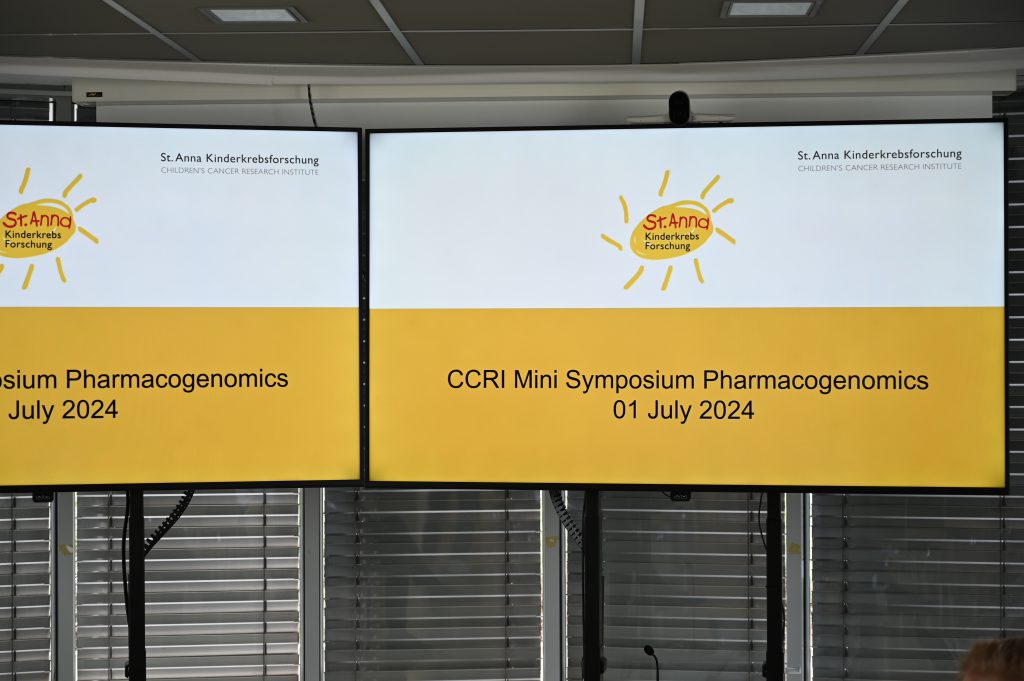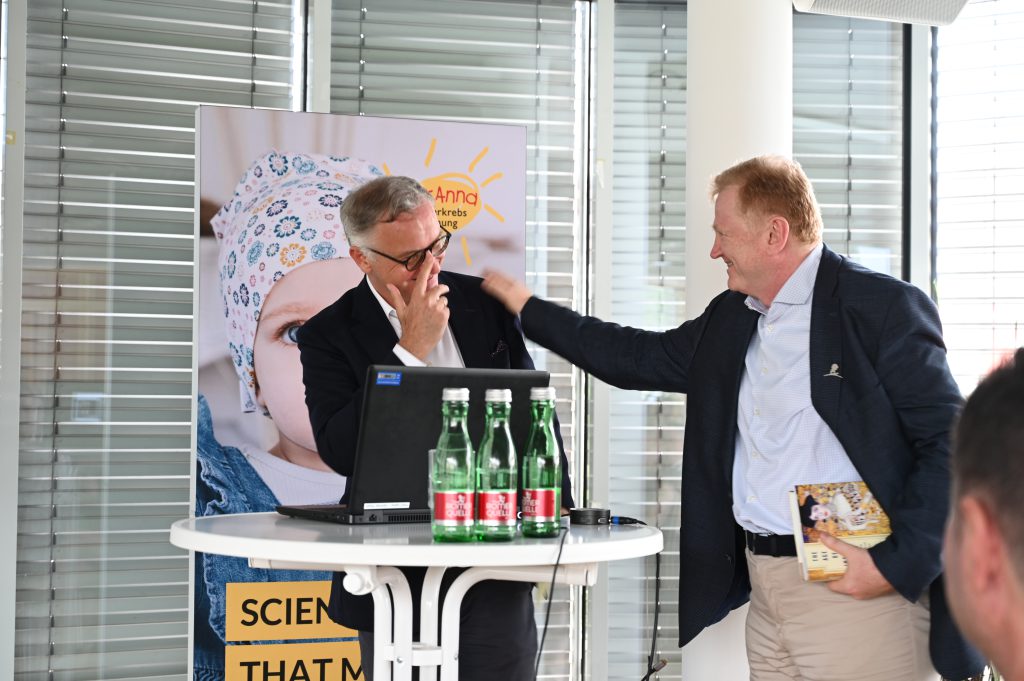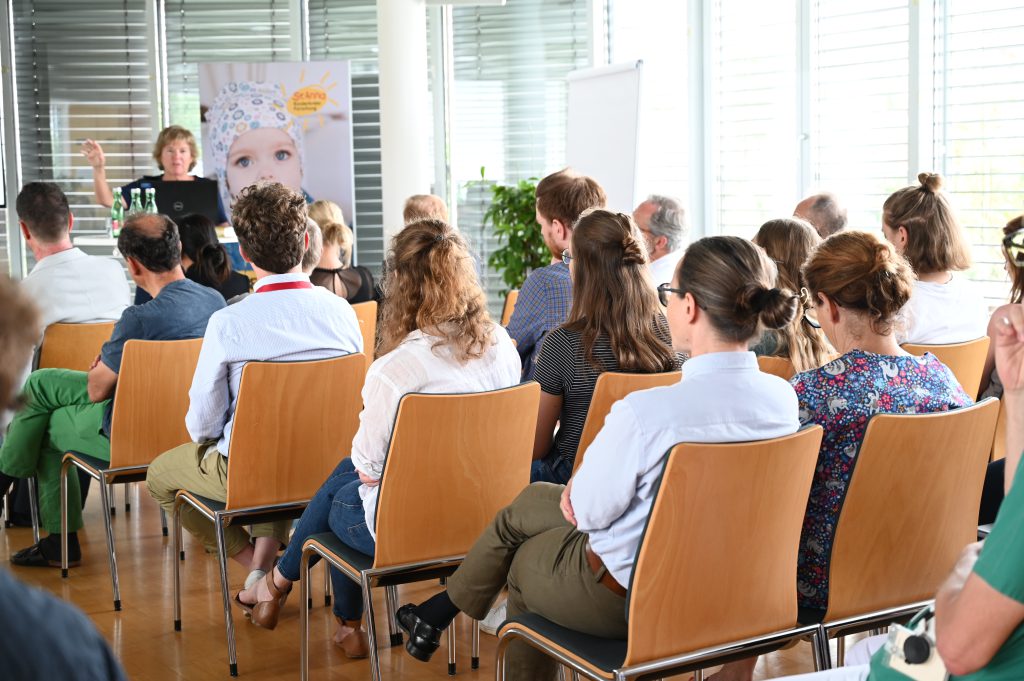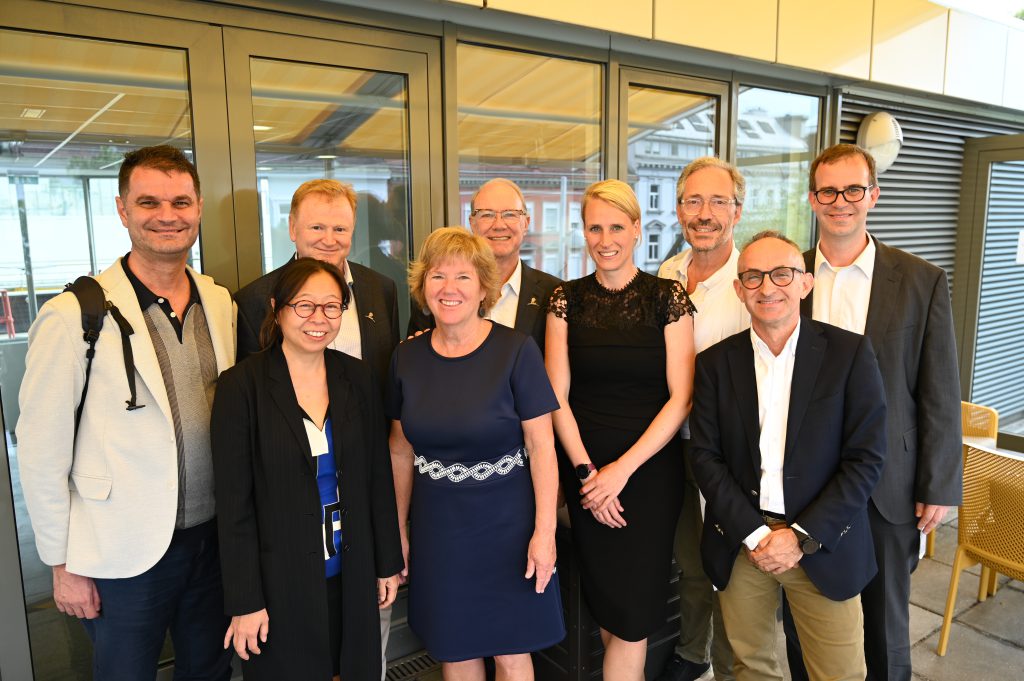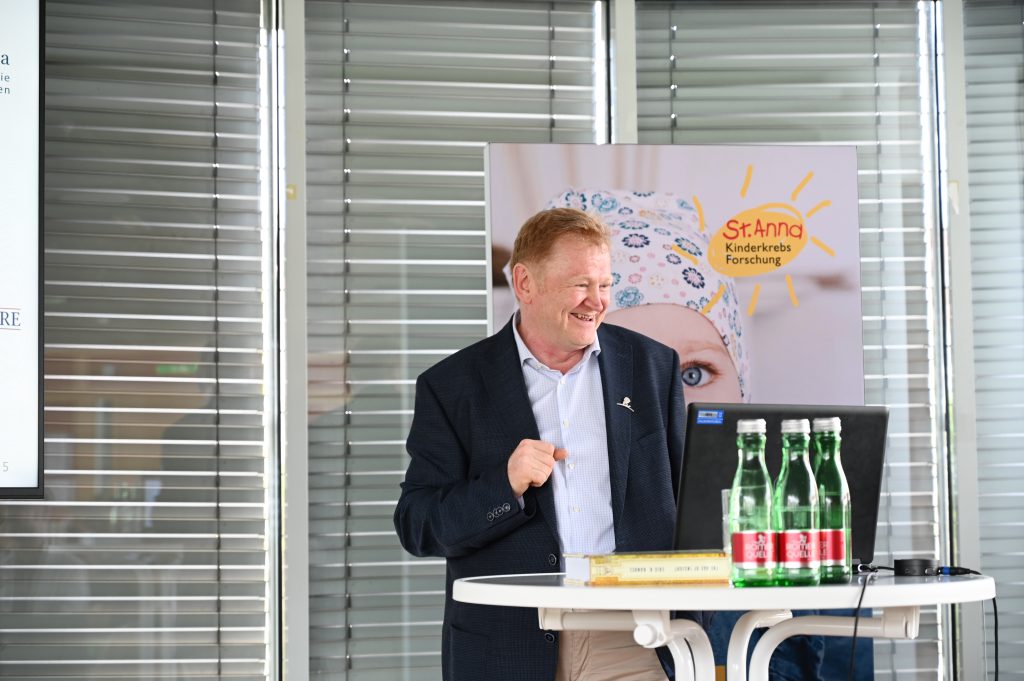From Research to Clinic: St. Anna CCRI’s Pharmacogenomics Symposium
St. Anna CCRI hosted its first pharmacogenomics symposium, showcasing the intersection of science and clinical practice in precision oncology. Renowned speakers Dr. Mary Relling and Dr. William Evans explored the impact of genetic data on drug prescription and the importance of international guideline development, as well as advancements in childhood leukemia treatment.
Summary:
- Genome testing is becoming more accessible resulting in the need for standardized guidelines in how to use these data.
- Standardized treatment raised the survival rate of ALL patients to 80%.
- Genetic factors can influence drug metabolism and treatment sensitivity.
- Despite the better survival rates, more children die of ALL than of any solid tumor.
Pharmacogenomics stands at the forefront of precision oncology, a field gaining increasing importance in cancer treatment. At St. Anna CCRI, where a dedicated precision oncology program is driving forward innovations in patient care, the institute recently hosted its first pharmacogenomics symposium. This event served as a testament to the institute’s commitment to bridging cutting-edge research with clinical practice.
Dr. Leo Kager, head of the institute and medical director of the Hematology and Oncology department at St. Anna Children’s Hospital, introduced the distinguished speakers: Magnifizenz Dr. Markus Müller, Dr. Mary Relling and Dr. William Evans – both pioneers with whom Dr. Kager had the privilege of working with in the past. “Inspiration, motivation, respect, trust—these are the foundations of our friendship and collaboration,” Dr. Kager remarked.
Austria’s Medical Journey
Dr. Markus Müller, Rector of the Medical University of Vienna and a world-renowned pharmacologist, guided the international audience through the bumpy history of medicine in Austria, highlighting the contributions of institutions like St. Anna CCRI. “One key to this success story was people, people, people,” Müller said. He noted that Austria spends less on healthcare than the USA yet has more doctors per capita, reflecting the efficiency of the Austrian system. Müller also introduced the construction of 80 km² of AI infrastructure at the AKH to further enhance precision medicine capabilities.
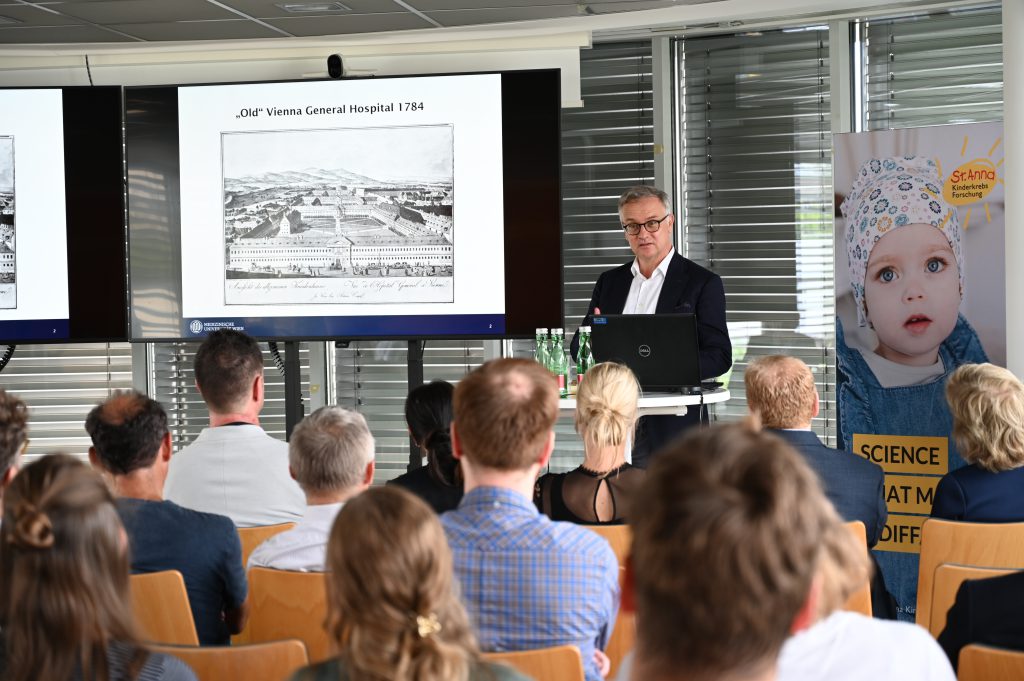
Pioneering Precision Medicine in Pediatric Oncology
Dr. Mary Relling, known for her pioneering work in pharmacogenomics, addressed the challenges of tailoring drug prescriptions based on genetic information. As member of the Clinical Pharmacogenetics Implementation Consortium (CPI), she highlighted the consortium’s pivotal role in translating genetic discoveries into practical applications at institutions like St. Jude Children’s Research Hospital . “The purpose of discovery research is to find genetic risk factors for poor outcomes and better understand the mechanisms behind them to prevent such outcomes,” Dr. Relling explained, underscoring the dual benefits of genetic testing in clinical settings. With genome testing becoming more accessible, there is a growing demand to individualize prescribing practices, shifting the focus from ‘should genetic testing be done?’ to ‘how can genetic information be used to individualized prescribing?’
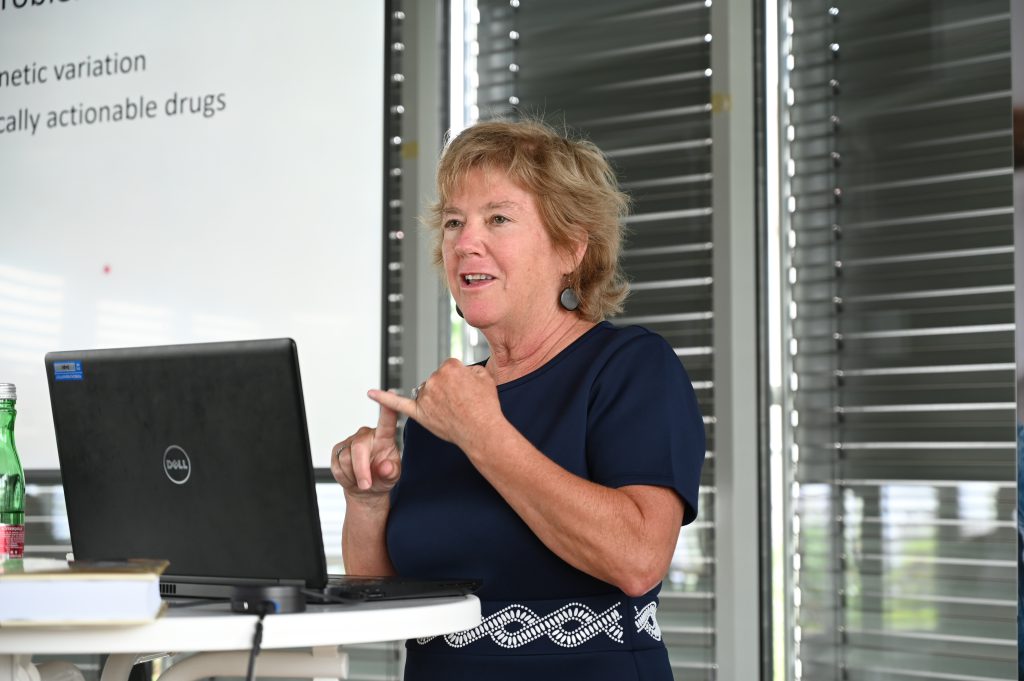
Categorizing gene-drug pairs
In response to these challenges, CPIC has developed standardized clinical guidelines aimed at assisting clinicians worldwide in leveraging genetic data for tailored patient care. Dr. Relling emphasized the rigor and accessibility of CPIC’s guidelines: “Our guidelines are peer-reviewed, non-profit, freely available, updated and cited in genetic test registries globally. We maintain strict conflict-of-interest policies for our authors.” The guidelines categorize gene-drug pairs as actionable or non-actionable, helping clinicians navigate treatment decisions based on robust evidence. “We have over 590 members in 36 countries, so we try to make our guidelines as internationally applicable as possible,” Dr. Relling says, illustrating the importance of international collaboration.
Advancing Childhood Leukemia Treatment Through Genetics
Dr. William Evans, former CEO of St. Jude Children’s Research Hospital, has dedicated much of his career to improving outcomes for children with Acute Lymphoblastic Leukemia (ALL). “The secret to success is the people and creating an environment where they can work together and do the best work,” he emphasized during his talk. In the early 90s, the event-free survival rate for ALL was at 80%, which, in practice, means that more kids die of ALL than they do of any solid tumor, since ALL is the most common type of cancer in children. Originally, patients received the same treatment regimen, adjusted only for body surface area, leading to varied outcomes and significant toxicity for some. The challenge was identifying which patients would respond poorly to standardized treatments.
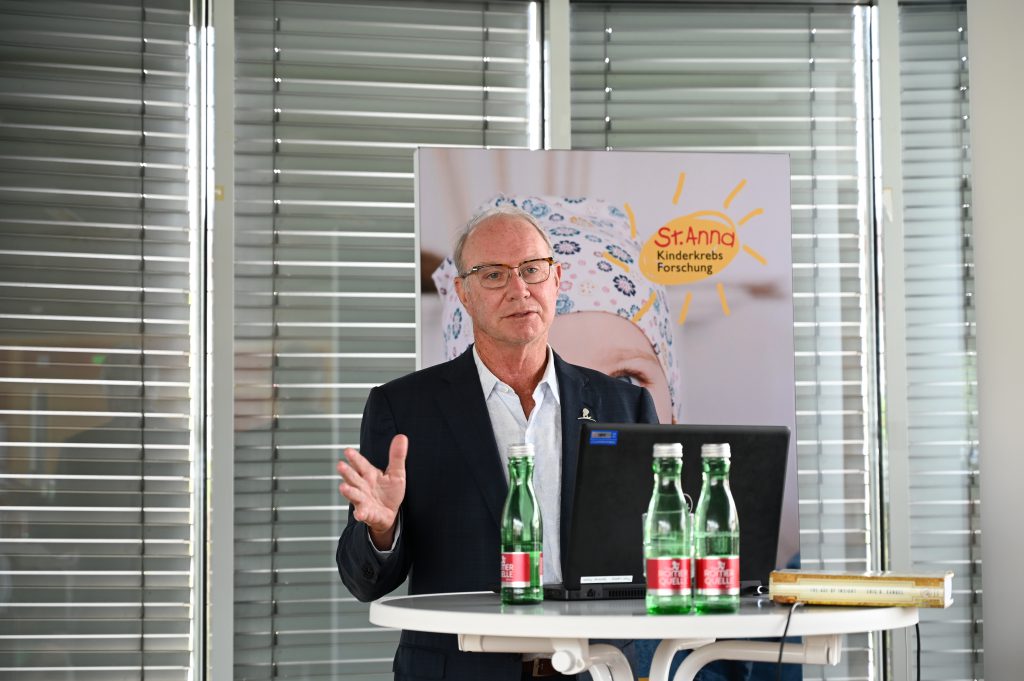
Tailoring Treatments Based on Genetic Variants
Dr. Evans and his team worked on understanding the genetic factors that influence drug metabolism and treatment sensitivity. By examining genetic variants, they discovered how certain genes affect drug processing and patient responses. “Once we identified these variants, we could implement phenotype activity measurements or genotype assessments to tailor treatments,” Dr. Evans explained. This approach reduced toxicity and improved outcomes.
To identify genes related to drug resistance with more confidence they included additional molecular profiling methods to back their findings. And indeed, 93% of the mRNAs that were associated with drug resistance were connected to one or more additional gene variant types (e.g. Copy Number Alterations, Single Nucleotide Polymorphisms, DNA methylation)
Today, with a 92% event-free survival rate for ALL, ongoing research continues to explore both germline and somatic variants to enhance personalized treatment strategies.
